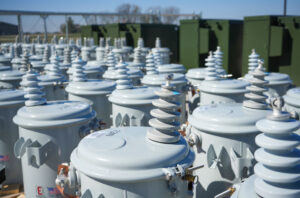The Trump administration recently issued a rule to reduce power plant carbon emissions. Known as the Affordable Clean Energy (ACE) rule, the new regulation will require power plants to work with state regulators to assess steps that can be taken to cut emissions through energy efficiency improvements.
America’s electric cooperatives welcomed the new rule, noting that it is far preferable to an earlier and far costlier attempt to regulate carbon emissions that ultimately was put on hold by the Supreme Court.
“The ACE rule represents a more flexible path forward that will minimize the cost to consumers and preserve the reliability of the electric grid as electric co-ops work to promote a healthy environment and vibrant rural communities,” said Jim Matheson, CEO of the National Rural Electric Cooperative Association.
“Electric cooperatives have invested billions of dollars in diverse energy sources and emission-reduction technology to meet the electricity needs of their local communities while protecting the environment,” Matheson said. “The ACE rule gives electric cooperatives the ability to adopt evolving technology and respond to market and consumer demands while continuing to serve as engines of economic development for one in eight Americans.”
Matheson stressed that the ACE rule will allow electric co-ops to ensure that affordable and reliable power remains available throughout communities like Dongola and Paris.
Power plant emissions have steadily declined due to market forces and evolving consumer expectations.
Nearly 60 percent of the electricity supplied by electric co-ops comes from low- or no-emission energy sources. Electric cooperatives have reduced carbon emissions 9 percent since 2009, even while increasing electric generation by more than 12 million megawatt-hours. And co-ops are investing in research to develop proven carbon capture, storage and reuse technologies that can extend the operation of coal-fueled power plants.
Electric cooperatives work hard to minimize the cost of new regulations to reduce the impact on electric rates for their consumer-members. In this instance, the ACE rule is consistent with the co-op mission to provide consumer-members with safe, reliable and affordable power, while continuing to reduce emissions and meet other important environmental goals.
Source: Dan Riedinger, NRECA








